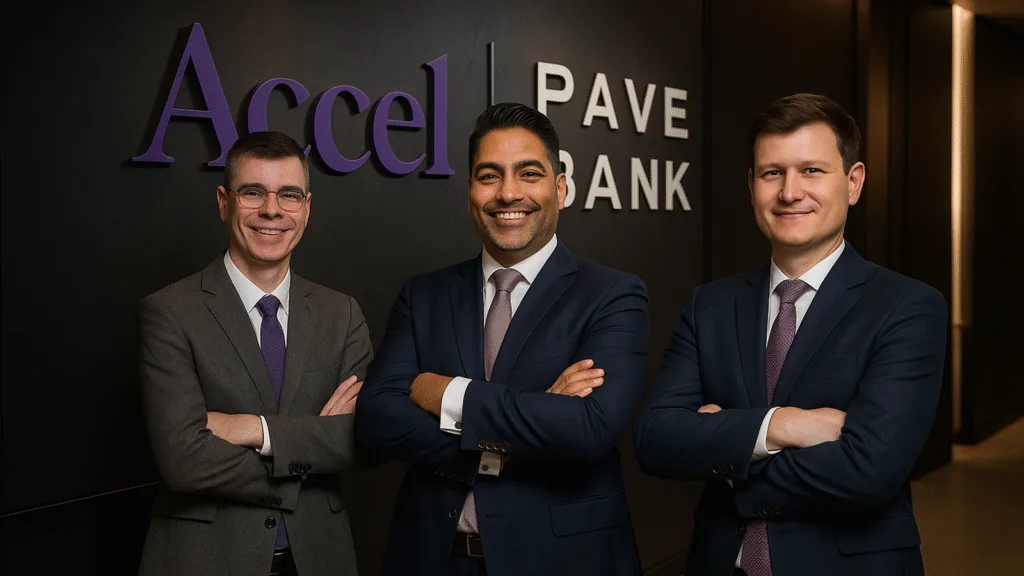- Pave Bank completes a funding round led by Accel, among others, bringing its total raised to over $44 million.
- The bank offers a unified platform combining deposit accounts, payments, FX, corporate cards, treasury services, and digital asset management.
- Pave Bank plans to expand its regulatory footprint into the U.S., UAE, Hong Kong, and Europe.
Georgia-based digital commercial bank Pave Bank has secured $39 million in funding, with the round led by global venture capital firm Accel. With the fresh funding, Pave Bank plans to scale its product suite, deepen institutional infrastructure, and gain regulatory licenses globally.
The round brings the company’s total funding to more than $44 million, which also saw the participation of Tether Investments, Quona Capital, Wintermute, Helios Digital Ventures, Financial Technology Partners, Yolo Investments, Kazea Fund, and GC&H Investments.
Pave Bank’s strategy and business outlook
Rather than chasing explosive top-line growth, Pave Bank emphasizes a sustainable, tech-driven operating model. It reported profitability early on, thanks to automation and AI in engineering, compliance, operations, and treasury functions. Its next growth phase focuses on broadening its regulated reach, launching programmable treasury and institutional products, and integrating into both traditional and digital-asset ecosystems.
Newsletter
Get weekly updates on the newest crypto stories, case studies and tips right in your mailbox.
Salim Dhanani, co-founder & CEO, says, “We have built a multi-asset bank that merges the stability and prudential oversight of traditional finance with the automation, speed, and intelligence of digital assets.”
What does Pave Bank do?
Founded on the belief that “money is programmable,” Pave Bank blends traditional commercial banking with digital-asset infrastructure. Clients range from exchanges to corporates managing fiat and stablecoins. Users can access a single interface for deposits, payments, FX liquidity, card issuance, corporate treasury, OTC trading, and on-chain settlement. This avoids the complexity of juggling separate providers for banking, custody, liquidity, and compliance.
As Rachit Parekh of Accel puts it, the investment reflects how digital assets are “becoming an integral part of the global financial ecosystem” and the need for “a well-regulated, full-reserve approach to banking at the intersection of fiat and digital assets”.
The bank holds a full commercial license and operates offices in Singapore and London, with expansion plans ahead. The long-term goal is to become a globally trusted financial institution for corporations and institutions, where traditional finance and digital assets seamlessly integrate.













